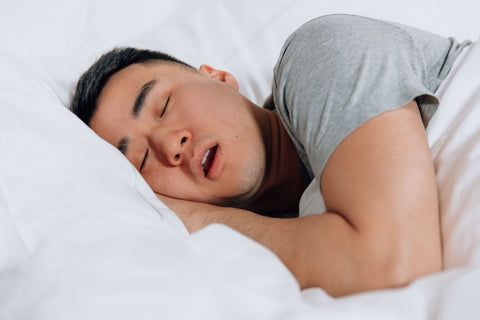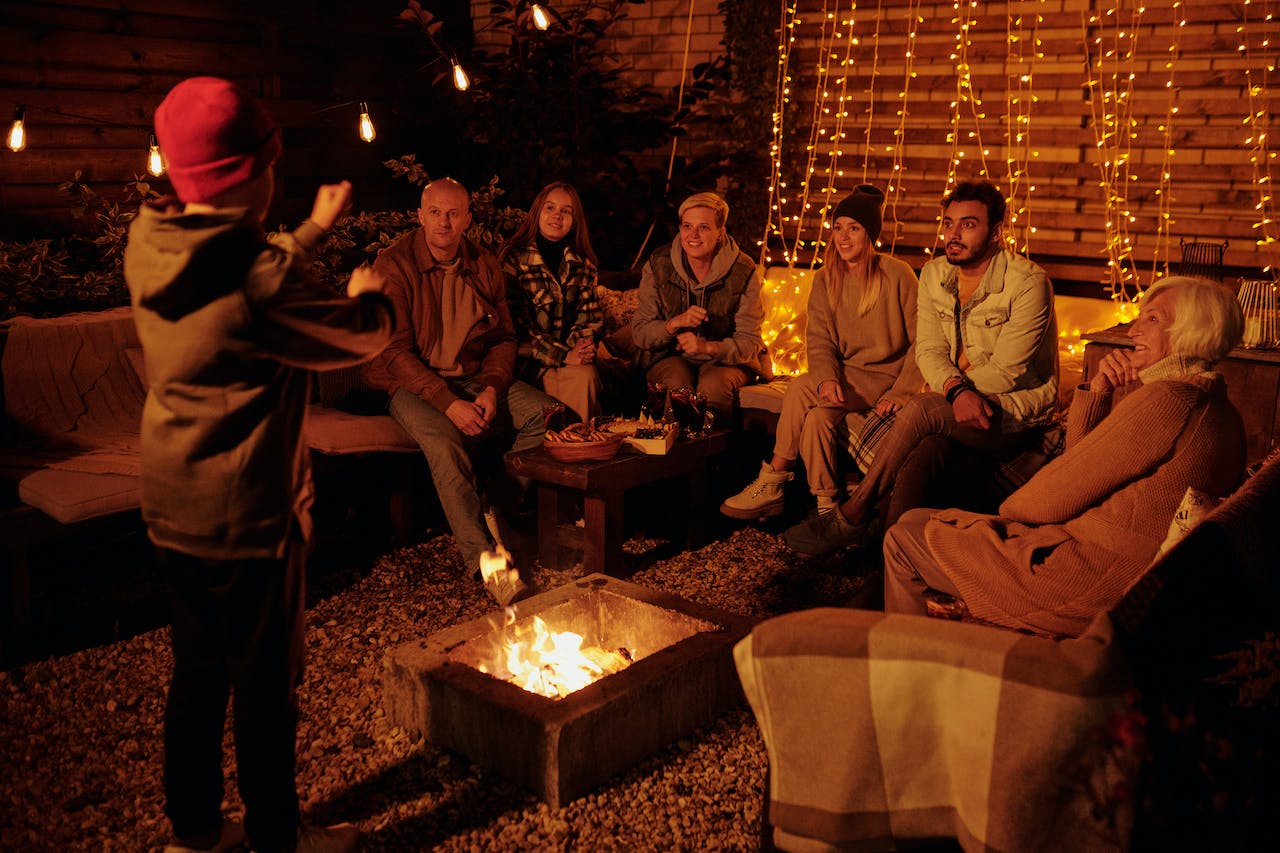Breathing is our literal lifeline: our respiratory system delivers vital oxygen that our cells need to do their job and keep our bodies functioning properly.
As oxygen enters our lungs and body, waste, toxins, and carbon dioxide make their exit.
Did you know that the method in which you breathe in oxygen makes a difference in oxygen delivery? Mouth breathing, for example, doesn’t oxygenate the body efficiently.
Although dangerous, breathing through the mouth has become a chronic habit of many. In fact, over 60 percent of people self-identify as mouth breathers.
But what causes mouth breathing? And why is mouth breathing bad? For starters, it worsens congestion.
Congestion? Mouth Breathing May Be to Blame
If you find yourself waking up with congestion regularly, it may be because you mouth breathe throughout the day and night.
So what causes mouth breathing in the first place? You may think that your congestion leads to mouth breathing, which is true, but mouth breathing also worsens congestion.
As you breathe in and out of your mouth, you’re actually over-breathing. This leads to increased mucus production in the nasal cavity to slow your breathing, causing congestion.

When congestion increases, we default to mouth breathing even more than before. Nasal breathing, on the other hand, keeps congestion to a minimum while filtering the air we breathe.
Mouth breathing doesn’t offer the same filtration system, leaving the immune system without the same line of defense against foreign germs and bacteria in the air.
Mouth Breathing Lowers Our Immune Defense
As you’ve probably already noticed, your nostrils are filled with small nose hairs.
These hairs, called cilia, actually serve a very specific function: they let oxygen in while keeping dirt, toxins, bacteria, germs, and other pathogens out of your lungs and body.
@somnifix Think twice before trimming your nose hair! 👃 #cilia #nasalbreathing #airwayhealth #didyouknow #learnontiktok #funfacts ♬ Whats this I like it Picasso Yeah datway - ReefaTV
The nostrils also add moisture to the air you breathe, keeping the lungs from drying out when taking in air.
On top of that, the nose produces nitric oxide: a powerful molecule that activates our parasympathetic nervous system. This helps us to “rest and digest.”
Nitric oxide has also been shown to kill bacteria.
In fact, the bitter taste receptors in our noses aren’t for helping us taste or smell our food. Researchers at the University of Iowa believe that they’re there to help fight off infections.
The mouth doesn’t produce the same germ-killing nitric oxide. When you breathe in and out of the mouth, you are left defenseless against these pathogens and germs.
Moreover, mouth breathing may even harm your teeth and gums.
Deteriorating Oral Health and Mouth Breathing
If you want to reduce visits to the dentist, cutting back on mouth breathing is key.
Saliva evaporates in your mouth as you breathe through it at night. You may not think that’s a big deal, but saliva plays a huge role in protecting your oral health.
Saliva coats the teeth, providing a protective barrier between them and the germs and plaque in your mouth. As it dries out, the teeth are left defenseless as acidity in the mouth rises.
Acid and germs burn through your enamel, leading to deterioration. That means tooth decay, chronic dry mouth, and even gum disease.

Not to mention that open-mouth breathing is only possible with a tongue posture that is unnatural for your teeth, causing jaw alignment and Temporomandibular Joint Dysfunction (TMJ) in severe cases.
The unnatural tongue posture caused by mouth breathing can even worsen your sleep quality.
Mouth Breathing Keeps You Up at Night
As we’ve already mentioned, nitric oxide helps to activate the parasympathetic nervous system, helping us to relax, slow our heart rate, relax our muscles, and decrease our breathing rate.
This helps us wind down at the end of each day. However, when you breathe habitually in and out of your mouth, your chances of activating the parasympathetic nervous system dwindle.
Mouth breathing actually activates the sympathetic nervous system, or the “fight or flight” response. When answering the question, “why is mouth breathing bad?” this might be one of the most important things to understand.
When your sympathetic nervous system is activated, your body goes into overdrive. This stress response makes relaxing difficult, making restful sleep extremely hard to achieve.

Most importantly, mouth breathing leads to snoring and sleep apnea, both of which fragment sleep.
Mouth snoring occurs when the mouth falls open, leading to a dropped jaw. The tongue then falls back into the airway.
The result? A blocked airway where tissues vibrate together, producing snoring. Over time, snoring leads to sleepless nights for both you and your partner.
Beyond that, untreated snoring is also linked to headaches, low energy, decreased memory and focus, low motivation, and in extreme cases: stroke and cardiovascular problems.
There’s no question about it: mouth breathing is harmful. Now that you know all aboutwhymouth breathing is bad, we can shift our attention to the superior alternative: nasal breathing.
Why Nasal Breathing is Unparalleled
Believing that mouth breathing is no big deal may lead to a myriad of health problems. Nasal breathing is the superior alternative.
But what is so great about it? And how can you begin to make the switch from mouth breathing to nasal breathing?
For starters, air intake through the nose is steady, slow, and provides just the right amount of oxygen to properly oxygenate the body.

We’ve already talked about how the nose filters and humidifies the air, adding nitric oxide to your breath.
But did you know that nasal breathing can reduce inflammation across the body over time? It has even been shown to improve gut function, relieve pain, and may help aid in weight loss.
Most importantly, nasal breathing prevents sleep-disrupting snoring. On your journey toward learning what causes mouth breathing, it’s vital to know that an improper lip seal and tongue posture is a huge culprit.
As you nasal breathe, the tongue can remain pressed up against the roof of the mouth with lips sealed. This is known as a proper tongue posture.
Mouth tape can help you maintain this posture as you sleep by physically keeping the lips shut, making mouth breathing impossible.
Put a Stop to Mouth Breathing for Good With SomniFix
Now that you understand the answer to the question, “why is mouth breathing bad?” and you understand why nasal breathing is the most efficient way to breathe, you can shift your focus to making the switch.
Knowledge is power. You know what causes mouth breathing, so you can now work toward preventing it.
Checking in with your breathing during the day helps you nasal breathe during waking hours, while mouth taping helps you achieve proper breathing as you rest.
Don’t just trust any tape to provide the protection you need, though. Most tapes contain additives and chemicals that aren’t skin-safe.

SomniFix, however, was created especially for the skin. Our mouth strips feature a hypoallergenic adhesive that’s free from latex and gluten. Some may even find that our strips feel like a second skin!
SomniFix Mouth Strips are shaped for the lips and feature a small breathing vent to provide relief during periods of congestion where mouth breathing may be necessary.
Most importantly, SomniFix allows for continuous nasal breathing into the night for the best sleep of your life!



